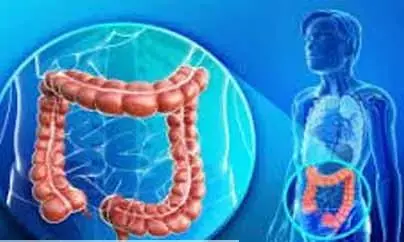- Home
- Medical news & Guidelines
- Anesthesiology
- Cardiology and CTVS
- Critical Care
- Dentistry
- Dermatology
- Diabetes and Endocrinology
- ENT
- Gastroenterology
- Medicine
- Nephrology
- Neurology
- Obstretics-Gynaecology
- Oncology
- Ophthalmology
- Orthopaedics
- Pediatrics-Neonatology
- Psychiatry
- Pulmonology
- Radiology
- Surgery
- Urology
- Laboratory Medicine
- Diet
- Nursing
- Paramedical
- Physiotherapy
- Health news
- Fact Check
- Bone Health Fact Check
- Brain Health Fact Check
- Cancer Related Fact Check
- Child Care Fact Check
- Dental and oral health fact check
- Diabetes and metabolic health fact check
- Diet and Nutrition Fact Check
- Eye and ENT Care Fact Check
- Fitness fact check
- Gut health fact check
- Heart health fact check
- Kidney health fact check
- Medical education fact check
- Men's health fact check
- Respiratory fact check
- Skin and hair care fact check
- Vaccine and Immunization fact check
- Women's health fact check
- AYUSH
- State News
- Andaman and Nicobar Islands
- Andhra Pradesh
- Arunachal Pradesh
- Assam
- Bihar
- Chandigarh
- Chattisgarh
- Dadra and Nagar Haveli
- Daman and Diu
- Delhi
- Goa
- Gujarat
- Haryana
- Himachal Pradesh
- Jammu & Kashmir
- Jharkhand
- Karnataka
- Kerala
- Ladakh
- Lakshadweep
- Madhya Pradesh
- Maharashtra
- Manipur
- Meghalaya
- Mizoram
- Nagaland
- Odisha
- Puducherry
- Punjab
- Rajasthan
- Sikkim
- Tamil Nadu
- Telangana
- Tripura
- Uttar Pradesh
- Uttrakhand
- West Bengal
- Medical Education
- Industry
Sulfur Microbial Diet linked to increased risk of Colorectal Cancer: JAMA

Colorectal cancer (CRC) has been linked to sulfur-metabolizing bacteria that convert dietary Sulphur to hydrogen Sulphide, with not many studies available.
In a new study conducted by Yiqing Wang and team it was found that adherence to the Sulphur microbial diet was linked to an increased risk of colorectal cancer (CRC). This study suggests that sulfur-metabolizing bacteria may mediate the association between diet and colorectal cancer risk and could potentially be targeted for risk mitigation
The findings of this study were published in the Journal of American Medical Association on 12th November, 2021.
Data from the Health Professionals Follow-up Study (1986-2014), the Nurses' Health Study (1984-2016), and the Nurses' Health Study II were used in this prospective cohort study (1991-2017). Participants were male and female registered nurses in the United States who were free of inflammatory bowel disease and cancer at the start of the study, with a subsample of participants providing stool samples from 2012 to 2014. From September 1, 2020, to June 1, 2021, statistical analysis was carried out. A dietary pattern identified through taxonomic and functional profiling of gut metagenome data that was most closely associated with 43 sulfur-metabolizing bacteria.
During 5 278 048 person-years of follow-up, 3217 incident cases of CRC (1.5 percent) were documented among 214 797 participants (46 550 men and 168 247 women). In a subsample of 307 men and 212 women, the Sulphur microbial diet was characterized by high intakes of low-calorie beverages, French fries, red meats, and processed meats and low intakes of fruits, yellow vegetables, whole grains, legumes, leafy vegetables, and cruciferous vegetables. After controlling for other risk factors, higher adherence to the Sulphur microbial diet was associated with an increased risk of CRC, with a hazard ratio (HR) of 1.27 comparing the highest vs lowest quintile of diet score. Greater adherence to the Sulphur microbial diet was associated with distal colon cancer but not proximal colon cancer when assessed by anatomical subsites.
In conclusion, the Sulphur microbial diet, defined by high intakes of low-calorie drinks, red meats, and processed meats and low intakes of fruits, whole grains, and vegetables, was found to be associated with an increased risk of CRC in this cohort study, implying a plausible microbial mediation for diet-CRC associations and the potential of using dietary modification as a risk reduction strategy in CRC.
Reference: Wang Y, Nguyen LH, Mehta RS, Song M, Huttenhower C, Chan AT. Association Between the Sulfur Microbial Diet and Risk of Colorectal Cancer. JAMA Netw Open. 2021;4(11):e2134308. doi:10.1001/jamanetworkopen.2021.34308
Medical Dialogues consists of a team of passionate medical/scientific writers, led by doctors and healthcare researchers. Our team efforts to bring you updated and timely news about the important happenings of the medical and healthcare sector. Our editorial team can be reached at editorial@medicaldialogues.in.
Dr Kamal Kant Kohli-MBBS, DTCD- a chest specialist with more than 30 years of practice and a flair for writing clinical articles, Dr Kamal Kant Kohli joined Medical Dialogues as a Chief Editor of Medical News. Besides writing articles, as an editor, he proofreads and verifies all the medical content published on Medical Dialogues including those coming from journals, studies,medical conferences,guidelines etc. Email: drkohli@medicaldialogues.in. Contact no. 011-43720751


